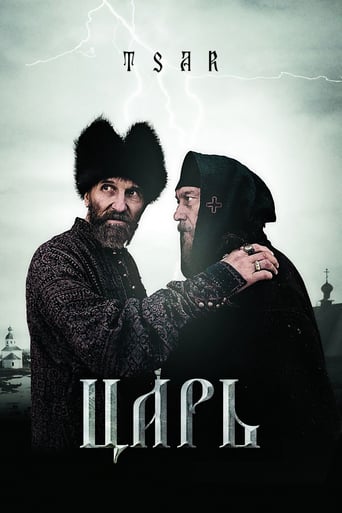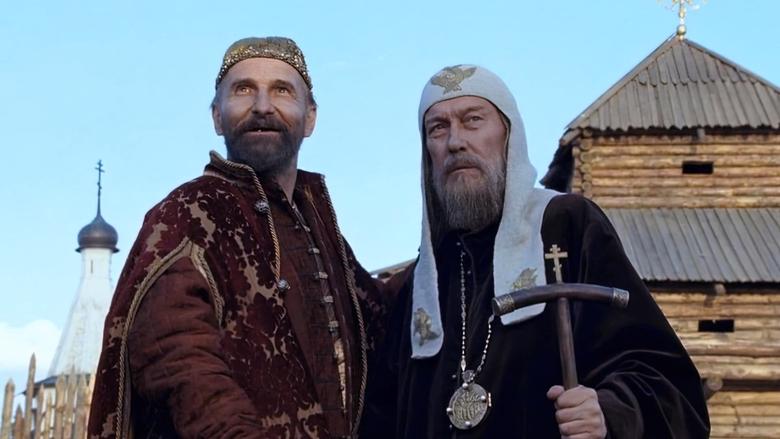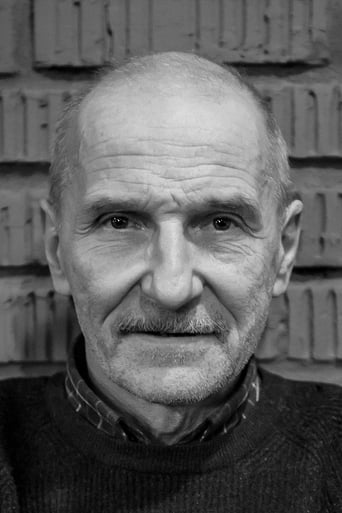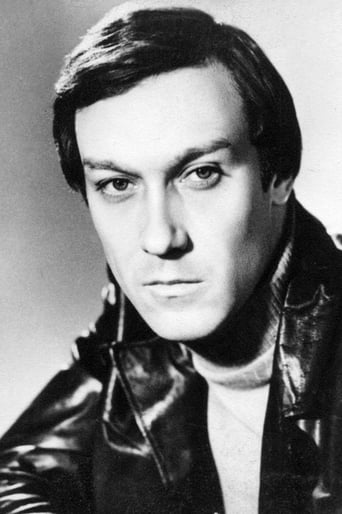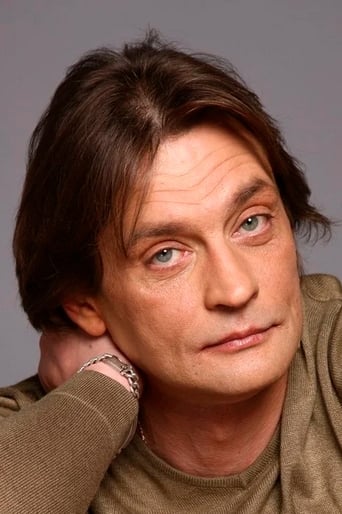Tsar (2009)
In 16th-century Russia in the grip of chaos, Ivan the Terrible strongly believes he is vested with a holy mission. Believing he can understand and interpret the signs, he sees the Last Judgment approaching. He establishes absolute power, cruelly destroying anyone who gets in his way. During this reign of terror, Philip, the superior of the monastery on the Solovetsky Islands, a great scholar and Ivan's close friend, dares to oppose the sovereign's mystical tyranny. What follows is a clash between two completely opposite visions of the world, smashing morality and justice, God and men. A grand-scale film with excellent leading roles by Mamonov and Yankovsky. An allegory of Stalinist Russia
Watch Trailer
Cast


Reviews
To me, this movie is perfection.
This is one of the few movies I've ever seen where the whole audience broke into spontaneous, loud applause a third of the way in.
There are moments that feel comical, some horrific, and some downright inspiring but the tonal shifts hardly matter as the end results come to a film that's perfect for this time.
It’s sentimental, ridiculously long and only occasionally funny
I agree completely with the author of "Sergei Eisenstein honored" in calling this film the third part of Eisenstein's intended trílogy of the most debatable of all Russian tzars. Eisenstein had planned a third film to his great "Ivan the Terrible" project but never came to fulfill it since already the second part was forbidden by Stalin, and Eisenstein died before Stalin. However, this film would have satisfied Eisenstein completely as a fulfillment of his last cinematic dreams.Of course, it has flaws. Pyotr Mamonov is not quite convincing as the tzar and does not stand up to a comparison with the incomparable Nikolai Cherkasov as the leading actor in Eisenstein's masterpieces. While Eisenstein's films are monumentally theatrical with every scene a masterpiece of composition and every face unforgettably impressive in pictorial portraiture, Mamonov as the tzar is too much of a caricature and is overdoing it in a grotesque way that falls out of the personage that the tzar really was. This twisted interpretation of the life on the throne is worsened by the revolting presence of the fool, who pushes the exaggerations far over the top of any credibility.All this grotesqueness, which really was part of Ivan's reign but only one side of it, is wonderfully balanced by Oleg Yankovsky as the metropolitan and childhood friend of Ivan, who the tzar desperately appeals to for friendship, which his ways make impossible. Here you have the full integrity of a real man who just can't compromise with his conscience and sense of right and wrong, while Ivan is way beyond any hope of insight in this matter. The metropolitan dominates the film, and the film is a masterpiece mainly because of him.Of course, there is very much you miss of Ivan's other aspects as a tzar. Neither Eisenstein nor Lungin included the episode of the slaughter of his son Ivan, and concentrating exclusively on the personal relationship between the tzar and the metropolitan, the film feels more episodic like a rhapsody than like an accomplished epic. There is certainly room in the future for a part IV of the complex, gigantic and humanly unfathomable story of the most debatable of Russian tzars.
Basic story. About power and faith. About power as expression of faith. About limits, fear and selfish. Impressive fragment of Russian history, it is, in fact, a parable. With wonderful cast and impressive images. Oleg Yankovskiy in his last role. Peter Mamonov as dark side of Father Anatoli from Ostrov. And the ambition of Pavel Lungin to say never death truth.Like a diamont, this movie has many faces. So, the first contact is only a sketch. Different impressions, heavey images, a new Mamonov, a short travel in history book to remind details about central character. Then, the waters are clear. The lights and the story , the dark isles and the splendid slices are nuances of same carpet. Ivan the Terrible is a fragile sinner built in self. And the gill, protect by Holy Virgin, the jester, the metropolitan, the hysterical wife - pieces of God presence in a desert without hope.
What can I say but that Eisenstein would be honored to see what this movie represents.In fact, and in my own personal view, if Eisenstein were alive these days, he would probably have filmed this movie the same way.The light and shadow play, evident homage to Sergei Eisenstein, the tenuous colors, always kept at very low intensity, not to make it to vivid or bright, but clearly reminiscent of the only color palette included in the Ballroom scene in "Ivan the Terrible", add all the glory and respect to the lineage of its two predecessors.I would even go further. This can be considered the third chapter, or the third installment to "The Boyar's Plot" and "Ivan the Terrible" by Eisenstein, concluding thus the intended trilogy.The actors are all excellent, particularly the two principal figures, Pyotr Mamonov as Ivan (whose looks strikingly resemble his predecessor, Nikolai Cherkasov), and as Philipp, the Orthodox Metropolitanate, Oleg Yankovskiy. One can guess that most of the cast comes from a true and solid theatrical background, but their theatrical skills are well put into use in this masterpiece of a movie.The director, Pavel Semyonovich Lungin, is a worthy follower in the enormous footsteps of his legendary predecessor, Sergei Eisentein. His style and his technique are immaculate and show a sense of artistry uncommon these days.I can only say a loud Bravo, to everyone involved with this movie, since they have given us the ideal ending to "Ivan the Terrible" and in such a way, as not to disrupt the continuity of the trilogy.In the words of Pavel Lungin, it is a warning to the ever changing world we know today, not to relapse into the same mistakes of absolutism of the past, but work toward a more tolerant future.I salute you, Pavel Semyonovich, and hope you will direct some more movies like these.
A fine historical drama in a great Shakespearian tradition. There may be historical inaccuracies, and there may be miraculous occurrences that would clearly be impossible in real life. But that is beside the point. We don't chide Shakespeare for being historically inaccurate or for events taking an unlikely turn. What matters is the insight he gives us in the human condition with all its failings. Ivan is the classical image of a dictator that is sucked down in a negative spiral of his own making. The people who speak up against him are violently dealt with. The flatterers and opportunists who play along with him cause him to be more and more detached from reality, and more and more lonely. The parallel with Stalin is obvious, but somehow the greater distance in time makes the message more abstract and therefore more powerful.The metropolitan is slow to grasp the depth to which his childhood friend has sunk, but when he does the way in which he stands up to Ivan in word and deed is both moving and inspiring. Since this is a movie and not a stage play, the effectiveness of the storytelling is helped more by beautiful cinematography and evocative music than by profound dialog. In the end I found it inspiring and disturbing at the same time.

